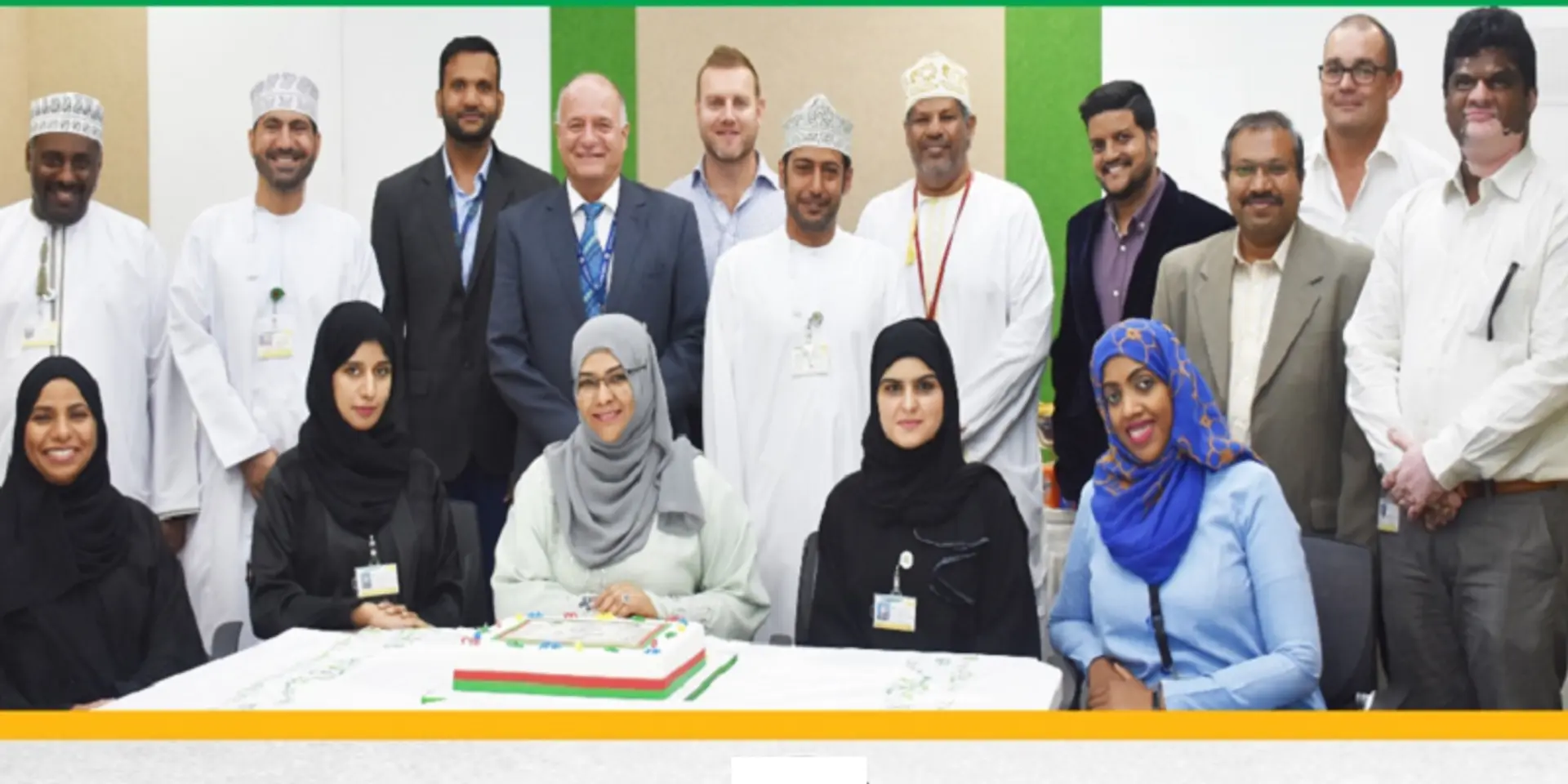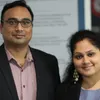Processes, practices, productivity: meet Petroleum Development Oman, winner of the Most Innovative Knowledge Enterprise (MIKE) award
In this interview, Oman’s leading petroleum exploration and production company shares highlights of its knowledge journey. It was among 10 organisations recognised for knowledge excellence at the CII Global Knowledge Summit 2020.
CII’s annual knowledge summit was held entirely online this year, and was titled CII Global Knowledge Virtual Summit 2020: Knowledge in the Age of Artificial Intelligence. It was also supported by the Knowledge Management Global Network (KMGN).
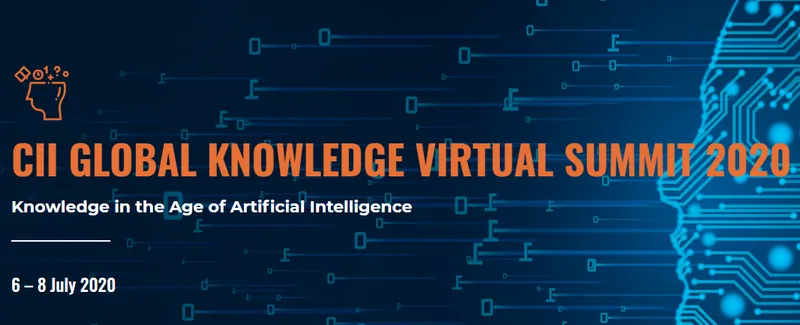
YourStory was the media partner for the flagship summits in 2019 and 2020. See our 15-part article series, which includes Knowledge Leadership, KM in the Age of AI, Gamification, Storytelling, Knowledge Sharing in the COVID-19 Era, and Eye on AI.
YourStory also moderated the panel on Knowledge Excellence: Winners of the Global MIKE Awards. (See my book series The KM Chronicles for case studies of earlier winners of the MAKE Awards and Singapore KM Excellence Awards.)
Petroleum Development Oman (PDO) is the leading petroleum exploration and production company in the Sultanate of Oman, and is a Global MIKE Award winner.
Hank Malik is the Knowledge Management (KM) Programme Lead at PDO, with extensive experience across the Middle East, Europe, the US, and Japan. As a speaker and author, he is much sought after at international conferences, and contributes to global business publications. His recent articles have also analysed the new ISO 30401 KM Standard.
Hank joins YourStory in this in-depth conversation on PDO’s knowledge journey, future plans, and business impacts. (See also our earlier profiles of MIKE award winners Tata Chemicals, Cognizant Technology Solutions, and Afcons Infrastructure.)
Edited excerpts from the interview:
YourStory [YS]: How would you describe your KM journey in terms of the phases, from your early years to today?
Hank Malik [HM]: We started the PDO KM Journey in 2014 as a strategic activity that we implemented to enhance our knowledge sharing and collaboration efforts. The initial emphasis was preparing PDO to become an effective, best-of-breed ‘learning organisation’, focusing on better capturing lessons learned and best practices across our major projects and operational areas.
The first phase of the PDO KM journey included small pilots in our projects delivery area, capturing the lessons learned in our oil and gas fields. We achieved significant early successes that allowed us to grow the KM Programme wider, with good support from the executive board.
YS: What are some impacts you can share of how KM has benefited your organisation?
HM: We built an all-encompassing KM framework, and as the PDO KM Programme matured, we achieved performance impacts across the organisation mapped against our four key KM enablers. They include content, best practices, expertise, and networks.
Significant benefits were achieved with better access to our shared lessons learned and best practices across both projects and operational areas. This culminated in millions of dollars saved in cost avoidance and cost savings – real tangible benefits demonstrated in business effectiveness.
A great enabler was a PDO in-house developed KM tool called the Learning Knowledge Base (LKB) for easily capturing, storing, sharing, and applying lessons learned and best practices. This indeed was our key ‘KM app’ and has become synonymous with PDO KM.
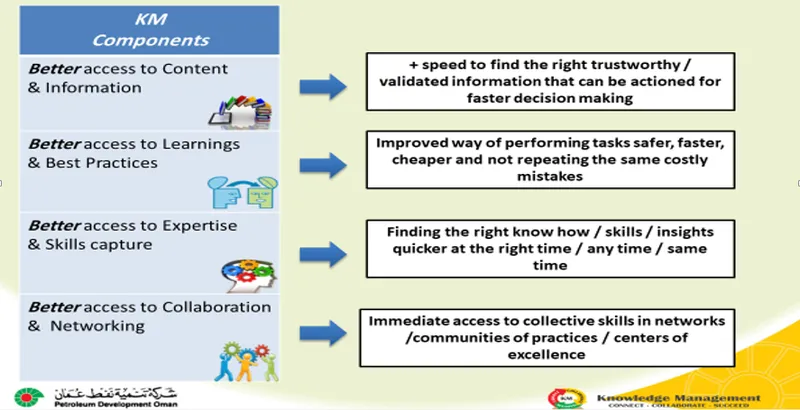
The Four KM Value Components
YS: Can you give some examples of processes where knowledge is embedded in the workflow, and other processes that require extra activity to manage or create knowledge?
HM: In PDO, knowledge (learnings and good practices) was embedded in Engineering and Projects Management within the Corporate Operational Readiness Process (ORP) for managing oil and gas programmes.
Here, at key Process Stage Gates, it was mandatory to undertake Lessons Learned at key project reviews, understand and apply them before being allowed to progress to the next stage. So successful was this, that key learnings were sometimes included in specification improvement updates and supporting documentation enhancements.
KM also assisted with the tools and processes to help capture key learnings from Process Safety Incidents. With effective PDO-wide dissemination, this helps avoid repeating safety incidents.
YS: What are some Communities of Practice (CoPs) you follow that involve knowledge inputs from external members?
HM: We are rolling out Communities of Practices currently focusing on enhancing collaboration across our PDO staff and contractors. These are mostly focused internally, using in-house developed CoPs via SharePoint. We have also explored the usage of Yammer, but this is not currently deployed PDO-wide.
YS: Tell us about your KM team – what are the roles and responsibilities?
HM: Within PDO, the number of staff involved with KM is increasing, which is good to see. At the Enterprise or Corporate level, we have a small Enterprise KM Team, which is led by myself. This is located in our Information and Digitalisation Department (IDD).
We act as the PDO ‘Centre of Excellence’ for KM, and manage the strategy and implementation of KM across the organisation. Activities include Programme Management, Governance, KM Tools and Process Delivery, training and KM support.
Across the wider organisation, individual functions are now creating new KM supporting roles with which my Enterprise KM team works very closely, for steering and support. KM roles across PDO include IM Lead, KM Specialist, KM Content Manager, and KM Change Manager.
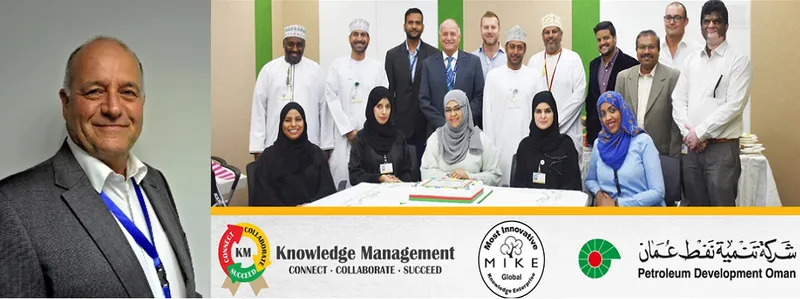
Hank Malik and the PDO KM team
YS: What are some of your initiatives and partnerships in the area of innovation?
HM: The PDO KM team is working closely with Ejaad, which is a joint venture between academia, government and PDO to support R&D and innovation. We are also supporting KM in separate initiatives linked to the strategic Oman national objectives to build the knowledge-based economy and the 2040 Vision.
YS: What are some emerging opportunities that will affect the future of your KM strategy?
HM: The opportunities that digital will bring should have a positive effect on the future direction of our KM strategy and roadmap. I see the exciting benefits that AI, machine learning, and intelligent cognitive search can bring to KM. It can help more effectively capture and share true informative and visionary insights, and good practices.
The predictive opportunities of digital are particularly exciting. PDO is actively involved in a range of industry-leading digital projects, and we look forward to joining forces with integrated KM solutions in the future.
YS: How has the COVID-19 crisis impacted knowledge sharing priorities in your company? What has changed and what remains the same?
HM: As a result of the impact of COVID-19, the KM team has been extremely busy with demand to capture and share more lessons learned, best practices, and insights around business and operational efficiencies. In addition, there is a renewed interest in CoPs, with the need for more remote virtual collaboration and networking between subject matter experts and content owners.
YS: What are the next steps in your KM journey?
HM: We have a number of areas ahead, including expansion of CoPs and preparation and readiness for ISO 30401 certification.
There is big push of people and expertise profiles to connect our people’s skills, know-how and insights more effectively. There is also development support for the wider Oman 2040 goals to support the knowledge-based economy.
YS: Based on your experience, what are your Top Three tips to business leaders on how they should harness KM?
HM:
- Have a clear business case with clear goals to be achieved, to solve real business problems.
- Start small with focused KM projects, and achieve quick wins in the first 100 days.
- Build a passionate and engaged KM team who believe in KM to achieve success.
(Edited by Teja Lele Desai)


